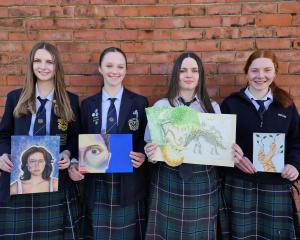The truth, the whole truth, and nothing but the truth. Rubbish!
Whether it was an aspect of the truth, sort of the truth, or close to the truth, we have all told a lie.
It may have prevented a heated argument, or helped avoid hurting a girl's feelings when she inquired if you liked her new, absolutely ghastly yellow and purple dress.
I believe lying or ''the deception of the truth'' has a valid place in society and, yes, you, shouldn't feel bad when lying in the right circumstances.
We lie a lot.
You do, I do, we all do!
It may be as simple as when you are asked how your day was.
And you reply: ''it was good, thanks,'' even though it was the worst day ever.
White lies are harmless lies, and normally told to avoid hurting someone's feelings.
If a friend asks for your opinion on their essay, you don't tell them it's awful, even if the grammar resembles a 6-year-old's. No, you gracefully lie and say it looks good.
White lies help to soften bluntness in society and prevent people being hurt by the opinion of others.
An effective lie can be a saviour in embarrassing situations; it can help you connect with others and build relationships.
And then there is always the well-practiced ''fake it until you make it''.
Lies help us smooth social interaction by removing unnecessary conflicts and confrontations.
A tiny lie to your parents about your whereabouts on Friday night, can prevent a much larger argument which benefits you and doesn't cause your parents' blood pressure to sky-rocket.
This improves their health, the Government saves on healthcare, which in turn benefits society.
Lying is essential on the world stage.
Government organisations lie to us all of the time. Manipulating us for their and our own benefit, this keeps us in check and prevents public outrage and panic.
In history, many lies have been told. In World War 2, Winston Churchill deceived the British nation.
He used the censorship of propaganda to persuade British citizens they were winning the war.
This increased morale, prevented the nation falling into a state of panic, and was used to mislead the Germans as to what the British knew, consequently keeping British society ticking along.
Imagine a world without lies.
The bluntness, the dullness, the hurt.
Infomercials wouldn't exist.
The junk food market would collapse, chocolate wouldn't be good for you.
A prime example of a world without lies is the movie The Invention of Lying.
This movie tells the tale of a society where everybody tells the truth all of the time, and then one guy realises how to tell something that isn't the truth (a lie).
When he discovers this, he ironically finds he can make the world a better place.
The deception of the truth, when used in the right circumstances, can benefit and help individuals and society in many ways.
This includes preventing conflicts, helping people feel good and safe, and make connections, as well as build relationships.
The truth is, lies are a primary gear in the clock of society.
They make the world go around and keep things ticking along.
So yes, we lie a lot. You do, we do, but it's not all bad.
Now that I have changed your perception on lying and redefined your definition of it, I hope you realise that not telling the truth is in the end, helping our society.
Remember a good lie is better than the ugly truth.
• By Simon Wallace-Blakely, Year 11, Wakatipu High School













